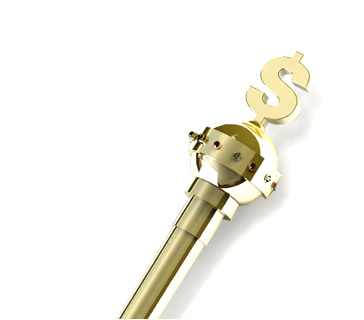How To Bet Like a Professional
Have you ever wondered why certain people make money year-after-year betting on sports, while the vast majority of people lose their deposits?
The truth is, professional sports gamblers usually have some very strict rules that they will always follow, while amateur gamblers will invariably go bust due to not having any sort of system in place. Amateur gamblers will make the same mistakes over and over again, and this leads to them getting exploited by bookmakers.
The big question that this article will attempt to answer: how does a person bet like a pro?
Let's look into the mindset of a professional gambler and how they operate on a daily basis. By following their rules, you can greatly enhance your sports betting returns.

1. Bankroll management.
This is the most important aspect of being a professional gambler. Professionals will have a set system for bankroll management that they do not deviate from, while amateur bettors will sink large pieces of their bankrolls into games that they have a "hunch" about.
A professional gambler will usually have a "unit" system that they adhere to.
In the simplest terms, take your entire bankroll and divide it by 100. Each of these 100 pieces is considered a single "unit". With most professionals, the maximum size of a wager is 1 unit, though they will sometimes go up to 2 if they feel really strongly about a game.
So, if your sports betting bankroll is $10,000, you should not be risking more than $100 per game. If you feel super strongly about something, a bet of up to $200 is OK, though it isn't something that you should consider on a regular basis.
The amateur sports bettor, on the other hand, might bet something like 50% of their bankroll on a single game. Anything can happen in sports, and even the biggest favourites can lose from time to time. Betting this much of your bankroll on a single game will guarantee that you will bust your bankroll. The professional, on the other hand, using their superior bankroll management, can outlast even the largest of downturns.

2. Develop a system.
What is your edge? Are you just betting games that you feel strongly about?
The professionals will usually have a system that they adhere to. Haralabos Voulgaris, who is considered the best basketball bettor in the world, developed a computer system called "Ewing" to help him wager on games. Ewing uses a wide assortment of different data points to come up with games to wager on. While amateurs will bet on their favourite teams, professionals like Voulgaris are betting on any game in which they feel that they have the edge.
You should pick sports that you feel very knowledgeable about and try to develop a system that you feel gives you an edge. This is what the professionals do, while the amateurs will simply bet based on hunches most of the time.
3. Follow the smart money.
Have you ever heard the term "sharp"? In sports betting, a "sharp" is considered the smart money - in other words, the professional gamblers.
Let's say that the Patriots are playing the Broncos in the Super Bowl. Now, there are two times when the "sharp" will be particularly active - shortly after the line is released and just before the game gets underway. You need to keep an eye on these two times to see what happens to the line.
For instance, let's say that the Patriots open as 8 point favorites over the Broncos in the Super Bowl. Shortly after the line is released, the line moves enough so that the Patriots are now just 6 1/2 point favorites. Keep this in mind, as it likely means that the smart money was betting on the Broncos heavily after the line was released.
In the weeks leading up to the game, the amateurs will bet their money on the game, which might push the line back to where it was when it first opened. The professional gamblers will sit patiently and wait until just before the game starts to place their bets.
There are plenty of resources online in which you can read about where the sharp money is betting their money.
Ask yourself this question - would you rather be on the side of the smart money or the dumb money?
4. Look for value.
Teams like the New York Yankees and New England Patriots will get tons of backing from the betting public. If you like the Yankees and enjoy betting on them, you should realize that you are an amateur gambler and will likely be separated from your bankroll in a short period of time.
Instead, you should be looking for VALUE. This requires you to shift your way of thinking, but this shift will likely be profitable over time.
For instance, let's say that you really like a particular football team's chances against one of the better teams in the league. You like them as a straight up bet, despite the fact that they are listed at +500 to win. You think that they will win 4 out of every 10 games, given the fact that the favoured team has been struggling as of late and the underdog's running back has been breaking out as of late.
Now, if you are this confident in the underdog, you HAVE to make this bet, even if the underdog ends up losing. You need to think about things over an extended timeline instead of on the basis of individual games. For instance, if your reasoning is correct and the underdog has a tremendous amount of value, over time this will be a profitable wager. Getting +500 for a team that you feel will win the game 40% of the time is an extremely enticing wager, and one that should be made without hesitation.
Again, you need to look for value. This is what professional gamblers do, and this is what you should do too.
5. Information.
Professional sports gamblers are always looking for that single piece of information that might be able to put their wager over the top.
How do the Patriots play on the road in warm weather? How do the Red Sox play following losses in the first two games of a series? How does Chris Sale pitch following a loss? How have the New York Giants been ATS so far in the season?
Professional sports gamblers will have access to some of the best information and statistics available, and they will fold all of this information into their systems before they place a wager.
The professional sports bettor is constantly crunching data in order to try to find an edge. If you want to be a serious sports gambler, you need to spend a great deal of your time reading and poring through numbers and data.
6. Access to Multiple Sportsbooks.
The problem with being a successful professional sports bettor? Some sports books won't want your business.
Sports books are in the business of making money, and if you end up winning on a consistent basis, there is a very good chance that your sports book will either close your account (after paying you out) or reduce the size of your bets (the likelier option).
For this reason, having a number of different sports books opened under your name is always a good idea. There is no rule against having multiple betting accounts, and you will also benefit from having access to various bonus/reload bonus offers.
Don't rely on one sports book or you may end up getting shut out just before a big game, and you don't want to be scrambling to send money to another book. Have at least 3-4 sports books open and ready to go.
7. Patience.
The final piece of the puzzle - professionals remain patient and wait for their price, while amateurs jump the gun and just want to get a bet down, no matter what.
There are many professionals out there who will not bet on a game if they don't get the odds that they want - they are willing to walk away if they don't get the price that they want, are you?
Professionals understand that it takes a long while to build up a proper bankroll, while amateurs will want to become rich overnight. The amateur mindset leads to busted bankrolls, while the professional approach can lead to a life of successful sports betting.
The professional is more than happy betting just 1% of their bankroll on a game, while the amateur will often bet their entire roll on one game in search of riches.
Do you see a pattern here? The professional sports bettor is much like a stock investor - they are taking the long-term view, looking to slowly build up their bankroll while making EV+ decisions.
The amateur, on the other hand, wants immediate gratification and doesn't want to put in the work.
Do you want to do this over the long-term? If so, follow the seven pieces of advice listed above.

